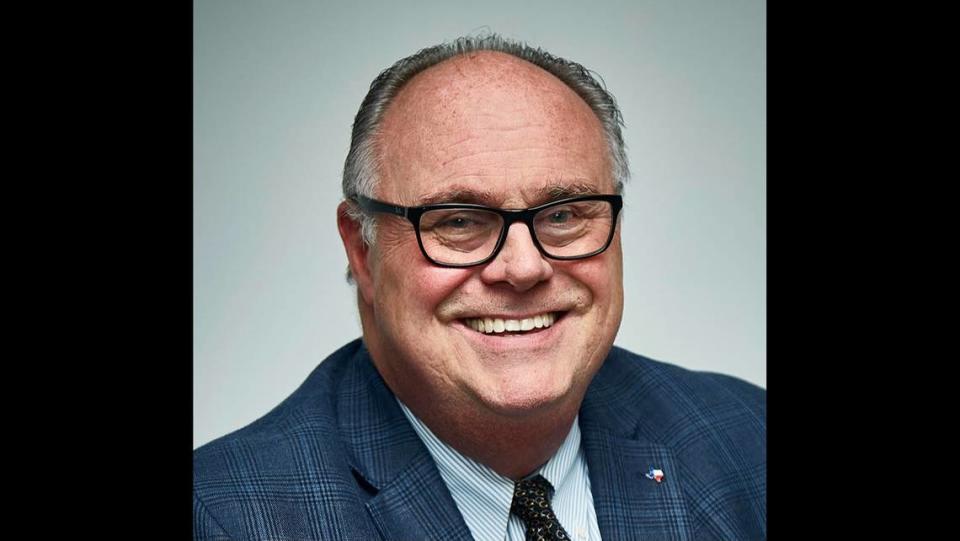Mark Davis: Should Texas stop employers from requiring workers to get COVID vaccine? | Opinion
The first ill winds of COVID seem like a decade ago. The battles over vaccines and masks seem like a bitter memory. But a trickle of news over some upticks in cases proves that the issue has not completely disappeared, and the Texas Legislature may end at least one battle that has simmered since its flashpoint in 2020.
Senate Bill 7, the work of Galveston Republican Mayes Middleton, passed the Senate last week on a party line vote of 19-12. It prohibits employers from firing or punishing employees or contractors for refusing the COVID vaccine. As it makes its way to the House, it is worth revisiting the path of this debate over the duration of our long nightmare journey through a dangerous virus, shifting science and controversial government reactions.
Policy decisions that look terrible in hindsight deserved somewhat more latitude when COVID first shook our world. Fear was rampant. Case numbers skyrocketed. Death totals filled every headline. The promise of a vaccine brought hope that was eagerly embraced not just as an individual rescue but a societal obligation. Vaccine skeptics were pilloried as rubes and eventually as outright villains. Vaccine advocates were blasted for presumptuousness and gullibility.
Inside that cauldron, a question arose: Should businesses be able to require employees to get the shot? As a vaccinated conservative nonetheless open to the opinions of others, my first default setting was to lean toward the rights of individual businesses to craft their own rules. This was an echo back to my long-vanquished position that establishments wishing to permit smoking should be able to do so, with clients and workers free to enter the buildings of their choice.
But this was more than a matter of of avoiding second-hand smoke; this was the prospect of workers forced to accept a freshly released vaccine into their bodies as a condition for feeding their families. The efficiency of Operation Warp Speed did not scare me, and I noted the waves of overreaction. Every mysterious death was pinned to the vax; online posts spread widely of contrived effects such as magnetized spoons stuck to foreheads.
But well within the realm of responsible adulthood was a position that said, “I am responsible for my own health, and I have assessed my opinion of this brand new vaccine, and my decision is to decline it.” Should that view cost people their jobs?
The passage of time has shown the broad errors of some of the initial vaccine pushes, most notably the wholly discredited assertion that it would effectively stem the virus’ spread. The vaccine soon took on the appeal of a tool individuals could seek if they wished to mitigate the severity of a COVID infection, a benefit that actually did pan out.
But the social stigma of unvaxxed status waned for all but the most ardent vaccine acolytes, and with it the logic for employers to require it. Even if one argued that employers would wish for a healthier workplace with fewer sick days, businesses don’t exactly police diet, exercise and personal vices that will always be greater factors in employee attendance.
So with the argument for employer vaccine mandates diminished, the next square in the flow chart asks: Is this something employers should be barred from doing? There are all kinds of rules and requirements we might run across in the job market. Some might strike us as odd, even onerous. But is a vaccine mandate an option that should be outlawed?
Answers may vary from state to state, and person to person. Enthusiasm for vax mandates has been the general province of liberalism, while conservatism has usually argued against them. That means in our red state of Texas, the expected prevailing view says that we are not going to have people fired for saying no to the COVID shot. There are blue states that remain free to maintain the practice. As our nation’s founders envisioned, the states are a diverse collection of laboratories featuring the practiced wishes of a majority of residents.
Blanket vaccine refusal is not an absolute right. Schools, the military and countless employers may require inoculations of various types. Objectors are free to find environments free of such obligations. Similarly, a business does not have an absolute right to require them. This is a textbook case of competing interests, inviting the ideal solution in a free society — an answer determined by the citizenry.
A new vaccine that was offered promptly upon the arrival of a new virus is now viewed by a majority of Texans as a health decision people should be able to make for themselves, without fear of private workplace sanctions. As such, the passage of Senate Bill 7 was proper, and the House should follow suit.
Mark Davis hosts a morning radio show in Dallas-Fort Worth on 660-AM and at 660amtheanswer.com. Follow him on Twitter: @markdavis.

Do you have an opinion on this topic? Tell us!
We love to hear from Texans with opinions on the news — and to publish those views in the Opinion section.
• Letters should be no more than 150 words.
• Writers should submit letters only once every 30 days.
• Include your name, address (including city of residence), phone number and email address, so we can contact you if we have questions.
You can submit a letter to the editor two ways:
• Email letters@star-telegram.com (preferred).
• Fill out this online form.
Please note: Letters will be edited for style and clarity. Publication is not guaranteed. The best letters are focused on one topic.

